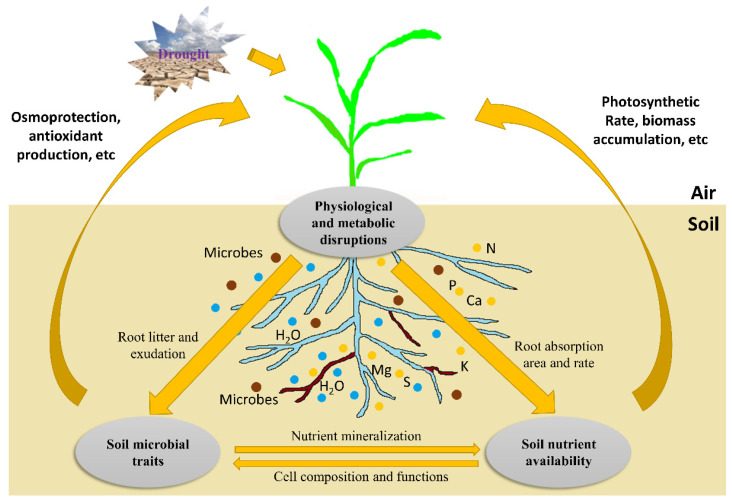Figure 1.
A framework showing drought effects on root physiological and metabolic processes and their interactions with nutrients and microbiomes in soil. Severe drought causes physiological and metabolic disruptions (see below for details). On the one hand, these disruptions influence nutrient uptake and metabolisms in plants, and vice versa. This feedback, in turn, affects biomass accumulation and grain yield. On the other hand, the inhibition of root litter and exudation production alters soil microbial traits (e.g., abundance, composition, and activity). These soil microorganisms may interact with roots in the rhizosphere, promoting plant growth via mycorrhizae colonization, osmoprotection, antioxidant production, etc. Under drought stress, soil microbes also affect nutrient availability through mineralization, and nutrients influence microbial growth via participation in their cell composition and functioning. Blue circles represent water resources in soil; yellow circles represent nutrient resources in soil; brown circles represent microorganisms in soil.

